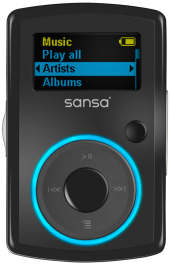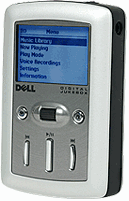As in every open source project, people who don’t program but who use and like Rockbox a lot tend to think and sometimes utter the words “I can’t code so I can’t help” when talking about what they can do for the project. But there are of course still endless amount of things we need help with. For example
 File good bug reports for bugs. Make an effort to really double-check the details, write up repeat recipes, try to repeat others’ reported bugs, fill in more details on the sparsely reported ones. Tell us when you can’t repeat already reported ones. We have so many bug reports and new ones come at a very high pace, that we need all the help we can get with sorting them out. Killing the bad ones as early as possible and getting the rest as detailed and accurate as possible.
File good bug reports for bugs. Make an effort to really double-check the details, write up repeat recipes, try to repeat others’ reported bugs, fill in more details on the sparsely reported ones. Tell us when you can’t repeat already reported ones. We have so many bug reports and new ones come at a very high pace, that we need all the help we can get with sorting them out. Killing the bad ones as early as possible and getting the rest as detailed and accurate as possible.
 Help out with the manual. The manual covers a lot of functionality for a wide range of targets, and we constantly find bugs and missing stuff in the manual that you can help us out to both find and correct. The manual is what we constantly point newbies to and it needs to remain accurate and well phrased.
Help out with the manual. The manual covers a lot of functionality for a wide range of targets, and we constantly find bugs and missing stuff in the manual that you can help us out to both find and correct. The manual is what we constantly point newbies to and it needs to remain accurate and well phrased.
 Help out with the “support”. People pop in on the IRC channel all the time, we have >14,000 registered users in the forums, we have almost 1,000 subscribers on the mailing lists. You can help out by responding to questions, offer advice etc.
Help out with the “support”. People pop in on the IRC channel all the time, we have >14,000 registered users in the forums, we have almost 1,000 subscribers on the mailing lists. You can help out by responding to questions, offer advice etc.
 Donate money. As blunt as it sounds, we need money at times. The money we receive by donations are primarily used for buying new and more hardware to developers, but we’ve also used it for developer-related activities such as pizza at devcon!
Donate money. As blunt as it sounds, we need money at times. The money we receive by donations are primarily used for buying new and more hardware to developers, but we’ve also used it for developer-related activities such as pizza at devcon!
 Donate server resources and bandwidth. Our sophisticated build-on-commit system requires a fair amount of speedy and available (Linux) servers that can rebuild Rockbox on demand from the build master server. We can always use a few more of these, and we only need 2GHz+ machines with a few gigabyte of storage to spare and a reasonable bandwidth.
Donate server resources and bandwidth. Our sophisticated build-on-commit system requires a fair amount of speedy and available (Linux) servers that can rebuild Rockbox on demand from the build master server. We can always use a few more of these, and we only need 2GHz+ machines with a few gigabyte of storage to spare and a reasonable bandwidth.
 Help test patches. We get a lot of patches, and learning how to build your own build and apply your own set of patches is quite easily done and really takes just a little effort. In fact, very often people also post binaries and make pre-built patched Rockbox packages available so many patches can even be tested without having to build anything on your own!
Help test patches. We get a lot of patches, and learning how to build your own build and apply your own set of patches is quite easily done and really takes just a little effort. In fact, very often people also post binaries and make pre-built patched Rockbox packages available so many patches can even be tested without having to build anything on your own!
So as you see there’s no reason to be shy any more. Step forward and help us improve!








 Obviously the
Obviously the